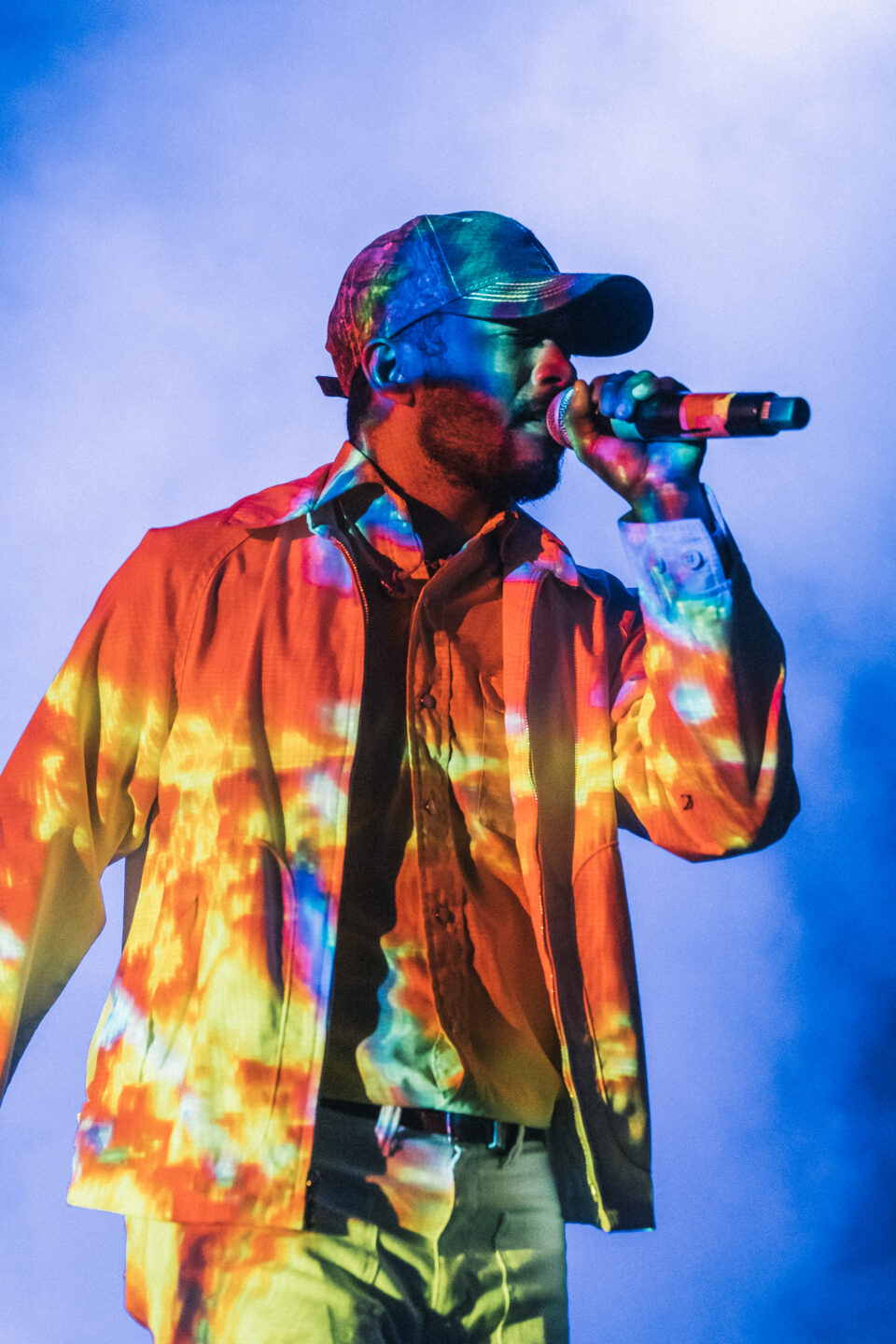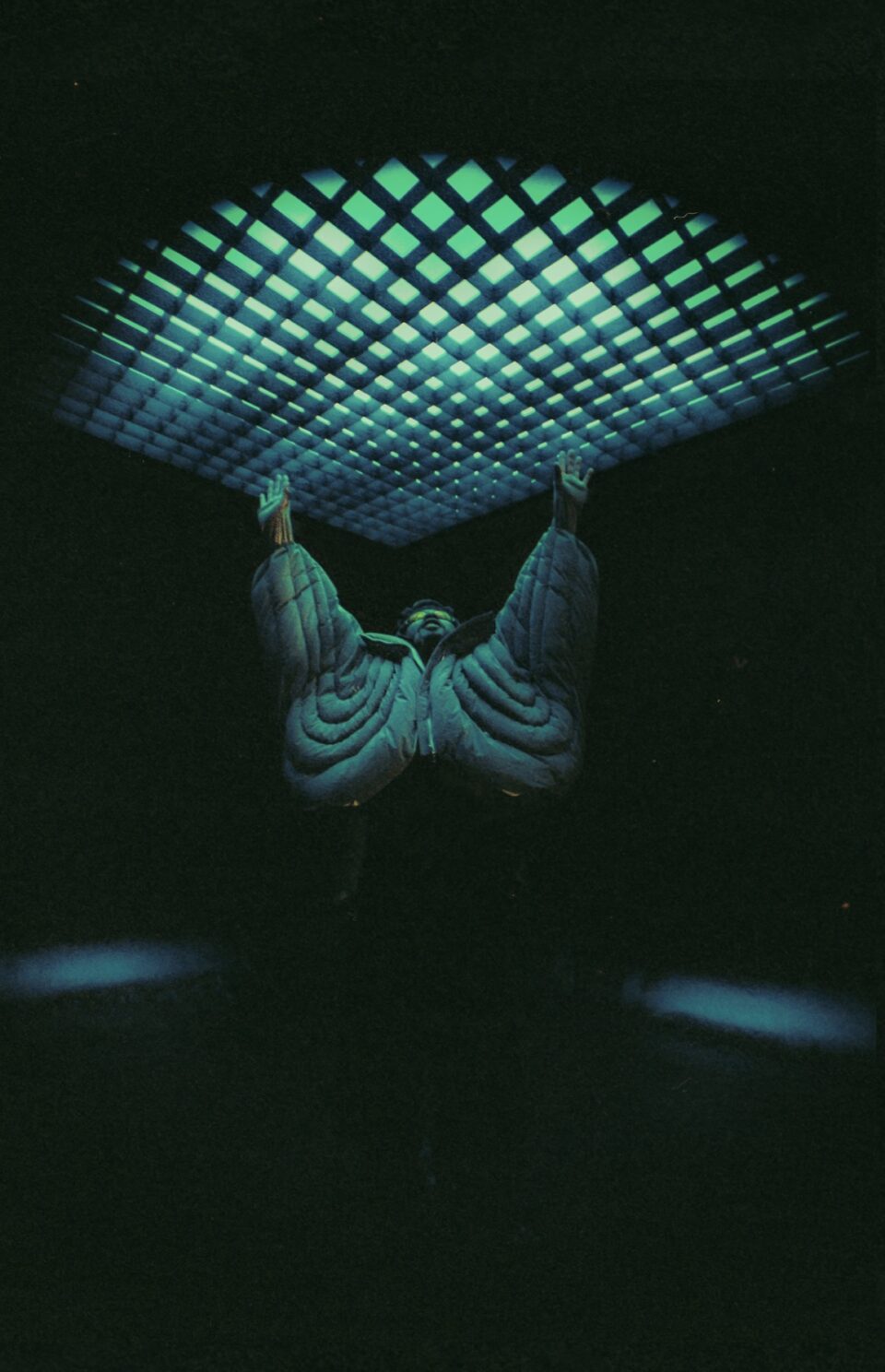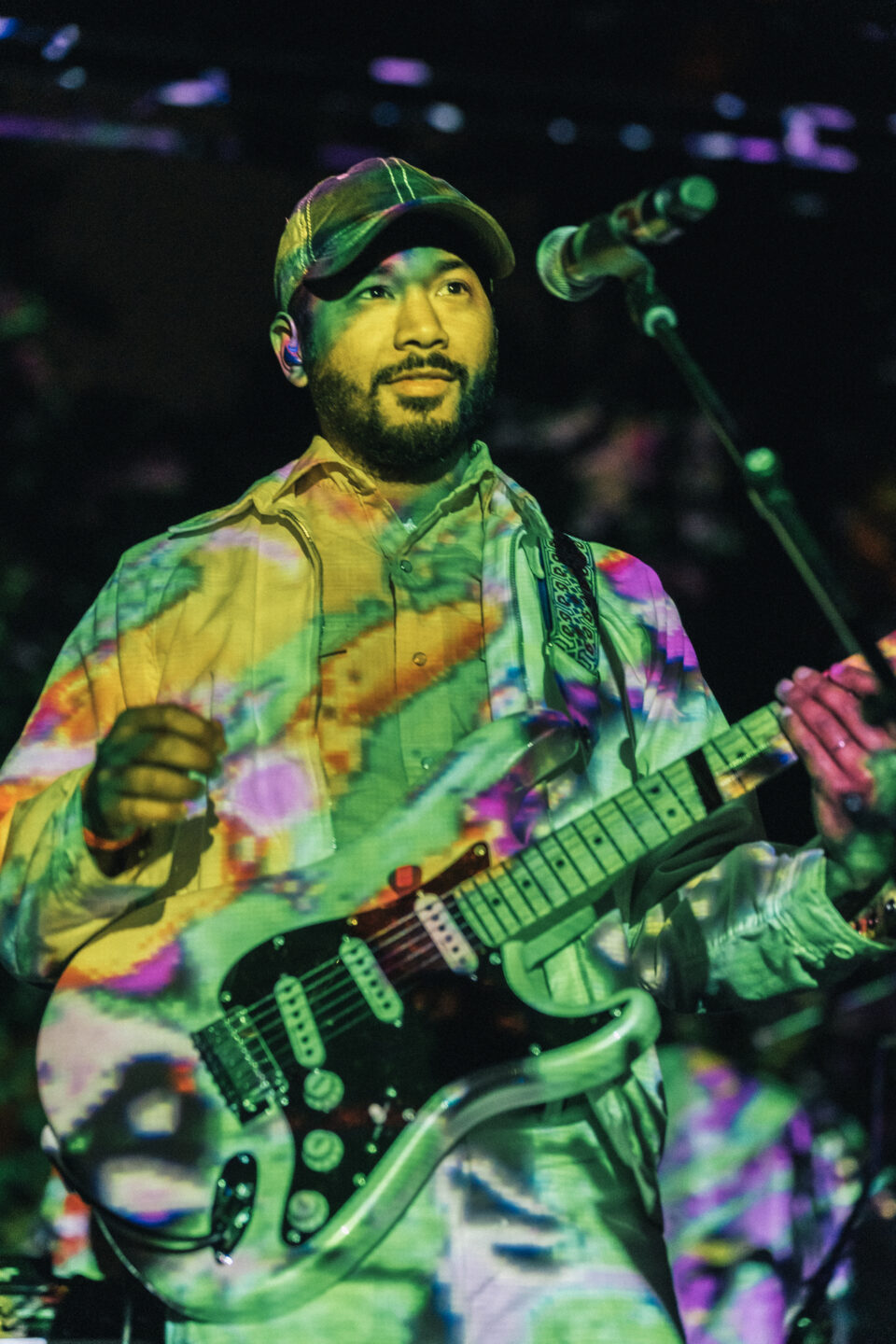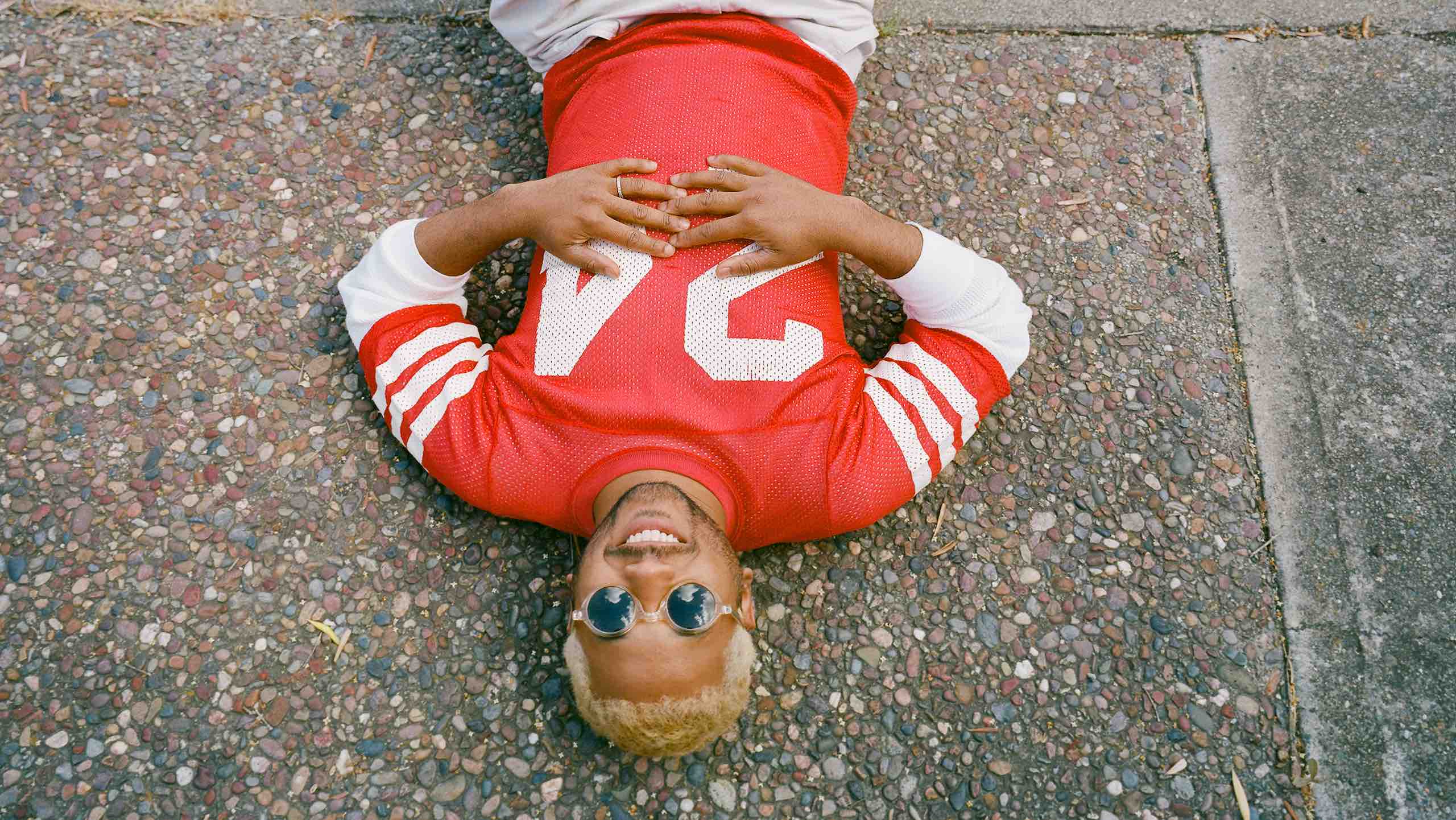Chaz Bear wants his edge back. The artist also known as Toro y Moi may only be in his mid-thirties, but on his new LP Hole Erth he explores the music that excited him as a young adult in hopes of sparking a sense of youthfulness in himself. It’s not that he’s necessarily nearing retirement age, but shit, life wears you down. He’s a dad now. When he wants to have fun he hangs out with his dogs or goes for a jog. Hole Erth was a way to regain some of the joy of discovery he lost to adulthood, which we all lost to the algorithm. Diving into his childhood favorites became a coping mechanism of sorts.
Normally, when people try to do things they’ve quote-unquote aged out of, it goes extremely poorly. But Toro y Moi hasn’t aged out of pop-punk, or singing about having to put spikes on his tour van outside of Denver (“Why they book us with no driving days?,” he asks on the track “CD-R”); rather, he’s just moved onto other things. 2022’s MAHAL LP was a psych-pop opus. Before that, he made a record with the experimental jazz duo Mattson 2. He runs his own label, Company Records. Now, he wants to make the music he heard on the radio—not the stuff Spotify predicts he’ll be interested in. Erth is a record that blends ingenuity and honesty in a stellar and imaginative way—looking back, but never getting warped by nostalgia.
With the record out now via Dead Oceans, we caught up with Bear to talk about the new record, Cali boy swag, community, and more.
You reference a lot of the music you grew up listening to on the project. When did that become the shape of the record for you?
That theme was sort of sparked by the Sandhills EP that I did [last August]—which is very different genre-wise, but I think it’s still coming from a place of mundanity. As far as the rock influence, I wanted to channel this sound that was untouched for me and almost taboo. It seems uncommon to reference Green Day or blink-182 for musicians my age. I wanted to accept that challenge and mature it in a way, and almost wear it on my sleeve. That sound of suburban angst was almost discredited. I always had this feeling that I wasn’t tough enough for other environments.
Do you feel like where you live plays a role in the way this album sounds? I know Sandhills was indebted to your hometown.
There’s this Cali-boy swag with this record. I want to merge these identities of mine—merge East Coast with West Coast, or merge this high schooler with this late-thirties person. It was honestly a bit of a challenge, but I really wanted to try to find my truth and find who I am today and not make something that would attach me to where I’m not. I’ve done a decent job avoiding this California trope with palm trees and LA imagery. I think it helps being not from California and having that outside perspective, but that stuff just felt way too commercial for me. I’ve always made an effort to avoid palm trees and stuff like that, or Santa Monica Beach—whatever things we’ve seen so many times.
“It seems uncommon to reference Green Day or blink-182 for musicians my age. I wanted to accept that challenge and mature it in a way.”

Toro Y Moi
Are you at a point in your career where the only thing that really feels good is to make something that makes you work hard?
I really feel like the most challenging part is trying to find things to say that I feel comfortable singing every night. With this record, the main thesis is: As we get older, it’s important to hold onto that edginess, that youthful seed of rebellion; to be like, ‘We can strive for the best.’ If anything, it gets harder the longer I do this. I’m now eight albums in with 12 years of touring. Do you want to just repeat yourself, or do you want to grow somehow? Sometimes that growth might not be appealing and commercial to people. I have to go with the flow, and if these songs are coming out the way they are, then I’m just going to roll with it and try to package it the best way I can. Even with this record being more hip-hop-centric, I felt like I wanted to channel that side of myself as well, and sort of find what my Blackness looks like and feels like and try to just put my spin on it.
Did you grow up on rap music?
A little bit. My dad was more into hip-hop than I was. I listened to Public Enemy, and when I got to high school I was observant of the hip-hop scene, especially once I started diving into music for real. In my skateboard world, I was into Jurassic 5 and stuff. I wasn’t into mainstream hip-hop or more trap stuff until the internet made everyone’s taste collide. For example, when Pitchfork gave Kanye a 10 and all these hipsters were, like, ‘What the hell is going on?’ You can’t escape that when the culture is in your face that much, to where this line of satire is erased. I wasn’t into Gucci Mane and JAY-Z and stuff like that, but something about Kanye really stuck out and I was really enamored by 808s & Heartbreak. He even shouted me out when I first got my career going. I was really into Tyler [the Creator] and Travis [Scott]. That class of hip-hop has influenced me more than any other.

“I want to merge these identities of mine—merge East Coast with West Coast, or merge this high schooler with this late-thirties person.”
The evolution of your listening reflects that sort of edginess you were talking about. Was that intentional?
Yeah, I really just wanted to find what it is I like about hip-hop and what it is I like about pop-punk. The pop-punk stuff can be cringey if you go back and look at it—not everything ages well. There are a handful of bands from that era that I think aged well: Saves the Day, Weezer. As far as seeing where my ear is going as a musician on the inside and as a listener on the outside, I do find myself putting on these records again and being reminded of certain melodies, emotions, and feelings that I would have before the internet merged all these cultures together.
You’ve lived through so many different eras of internet culture. Are you nostalgic at all for discovering music via CDs and zines and stuff like that?
I really am, yeah. I feel like the challenge in finding new music that doesn’t feel like it’s just being marketed to you is harder than ever. If anything, I’m just referring to friends these days. There’s no one site where you can go download a single MP3 and just live with it for a second and let it play on your iTunes. There isn’t that hunt anymore.
Because of how interesting your discography is, I’m wondering if you have a favorite era from your career.
It’s hard to tell from the outside what listeners see as “big” moments, but I love the Trona film. I love Anything in Return. That whole time period was just transformative. I felt like 2013, 2014, something happened to the internet where the floodgates opened and everyone who was already bubbling on the internet leveled up. Maybe it had something to do with the end of the blogosphere, but it was fun. Also, MAHAL was just a blast, too.
“I’m now eight albums in with 12 years of touring. Do you want to just repeat yourself, or do you want to grow somehow?”

Toro y Moi at Austin Psych Fest 2023 / photo by Daniel Cavazos
Do you still feel like you have a community music-wise where you live?
The short answer is yes. I do popups and listening parties, and I tabled at the SF Art Book Fair and the LA Art Book Fair. I still try to connect with my graphic design and visual arts community—that’s the community that thrives more in the Bay. I feel like in California, all the musicians eventually just go to LA, but I have my visual-artist community and my Company Records artists. I have my band and our small network with the label, like Madeline Kenney and Tanukichan. When I’m home, I hit up my painter friends, my graphic design friends, and yeah, there’s a really good scene connected to the art museums here. That’s where I feel like I find my people still.
Do you do anything to shut off your creative mind?
Yeah, I like to run. I like to hang with my dogs. I have a daughter now. So it’s mostly just doing a lot of domestic life.
Did having a daughter play into the album at all? Did it affect what you wrote about?
If anything, having a kid makes you feel like, “Oh shit, I’m getting old.” It sparked that idea of me wanting to find my youth and edginess. Having a kid doesn’t mean I’m settling down, in a certain sense. I love the idea of active families—families that travel with their kids and they’re not really bound to one location. FL







